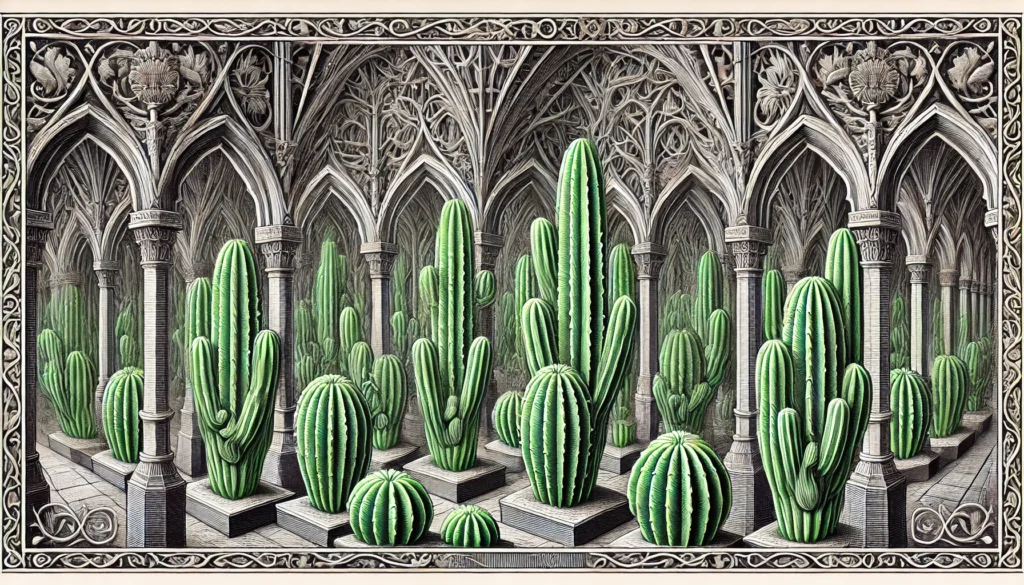

Home » Cat Plants » The Toxic Harm the Pencil Cactus Plant Can Cause to Cats

The Pencil Cactus (Euphorbia tirucalli), also known as Milk Bush or Naked Lady, is highly toxic to cats. This plant contains a poisonous sap that can cause severe irritation and potentially life-threatening symptoms if ingested or exposed to skin.
Native to semi-arid tropical regions of Africa and India, the Pencil Cactus is often kept as an indoor houseplant, making it a potential hazard for curious felines.
Ingestion may cause mild gastrointestinal upset, but is generally not life-threatening.
Ingestion can result in mild symptoms like vomiting, diarrhea, or drooling. Rarely fatal but may require veterinary care.
Eating these plants can lead to more pronounced symptoms like abdominal pain, lethargy, or difficulty breathing. Veterinary intervention may be necessary.
Ingesting even small amounts can cause severe symptoms like organ damage, seizures, or cardiac failure without rapid treatment.
All parts of these plants are extremely poisonous to cats and can quickly lead to death, even with immediate veterinary care.
** Please note: Please note that toxicity level can vary based on the amount ingested and the specific cat. It's always best to keep these plants completely inaccessible to cats and seek immediate veterinary care or call the poison hotline if you suspect your cat has ingested any part of a toxic plant.
If a cat comes into contact with or ingests any part of the Pencil Cactus, it can lead to a range of severe symptoms. The toxic sap of the plant contains irritants that can cause both external and internal damage.Common symptoms include:
If you suspect your cat has been exposed to a Pencil Cactus, it’s crucial to seek immediate veterinary care. Your veterinarian will likely follow these steps:
The veterinarian may diagnose plant toxicosis, specifically Euphorbia poisoning, based on the symptoms and your report of the plant exposure.

A: Yes, the Pencil Cactus plant is harmful to cats due to its toxic sap, which contains irritating substances. If ingested, it can cause severe oral irritation, vomiting, and stomach upset.
A: If a cat eats Pencil Cactus, it may experience symptoms such as vomiting, drooling, and oral irritation. The plant’s sap can cause significant discomfort, so immediate veterinary care is advised.
A: Yes, all parts of the Pencil Cactus are toxic to cats because of the irritating milky sap it produces. The sap can harm your cat’s mouth, gastrointestinal tract, and even its skin.
A: To prevent your cat from ingesting the Pencil Cactus, place the plant out of reach and consider using barriers. Opting for cat-safe plants like bamboo or catnip is a safer alternative.
A: Common symptoms of Pencil Cactus poisoning in cats include vomiting, drooling, and pawing at the mouth. In more severe cases, it can cause eye irritation and gastrointestinal distress.
A: Home treatment is not recommended for Pencil Cactus poisoning. If your cat comes into contact with the plant, seek immediate veterinary attention to manage symptoms and prevent further complications.
The pencil cactus, native to Africa, has been known for centuries. Ancient cultures used it medicinally and as a natural fence. European explorers documented it in the 16th century, and by the 19th century, it had spread to tropical regions worldwide as an ornamental plant.
Today, the pencil cactus remains popular in gardens and as a houseplant. Its unique appearance and low maintenance needs have ensured its continued cultivation. Recent research explores its potential for biofuel production and cancer treatment, while also addressing its invasive nature in some regions.
Please note: The information shared in this post is for informational purposes only and should not be considered as veterinary medical advice.
🐾 A hilarious or heart-melting cat video
🐾 Our latest paws-on review of a cool cat toy